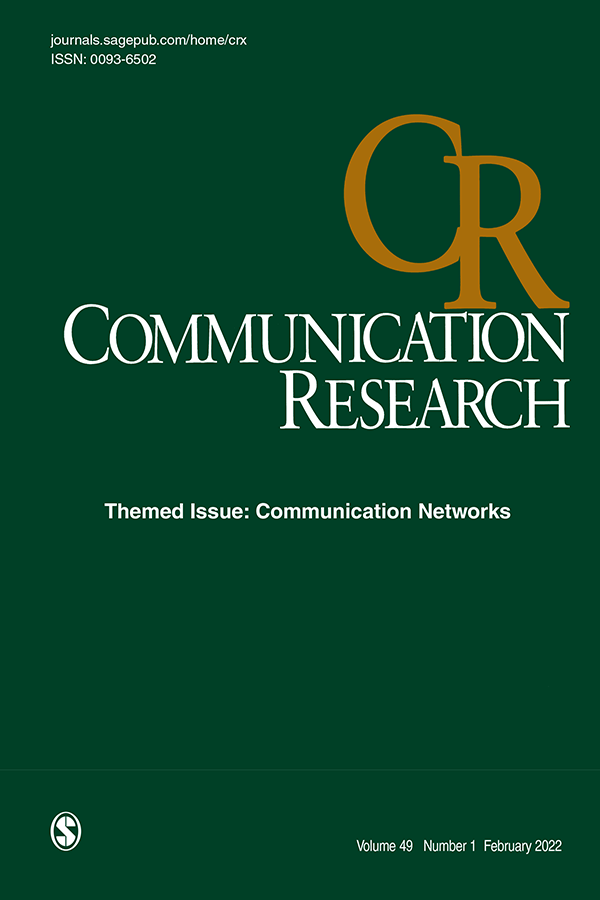When an AI Doctor Gets Personal: The Effects of Social and Medical Individuation in Encounters With Human and AI Doctors
IF 3.2
1区 文学
Q1 COMMUNICATION
引用次数: 0
Abstract
How do we know when someone knows us? Does it matter whether the knower is a human or a machine? Following the theory of interpersonal knowledge, a between-subjects experiment investigated whether a doctor’s incorporation of individualized knowledge about a patient’s social or medical history enhances doctor-patient relationships in online conversations. Patients in this study conversed with either a human doctor, an AI doctor, or an AI-assisted human doctor. Following previous research, additional factors such as perceptions of effort, relational closeness, privacy intrusiveness, and the provision of privacy control were assessed. Results showed that an AI doctor enhanced patient satisfaction when it employed social individuation messages, which triggered perceptions of increased effort, but only when patients could activate privacy control. Perception of relational closeness with a human doctor and an AI-assisted human doctor did not seem to require social individuation and privacy control. The study concludes with implications for the theory of interpersonal knowledge and AI-mediated communication research, as well as practical implications for improving chatbot medical systems.当人工智能医生变得私人化时与人类和人工智能医生接触时社会和医疗个体化的影响
我们如何知道别人是否了解我们?了解者是人还是机器重要吗?根据人际知识理论,我们进行了一项主体间实验,研究在在线对话中,医生纳入有关病人社会或病史的个性化知识是否会增进医患关系。在这项研究中,患者分别与人类医生、人工智能医生或人工智能辅助人类医生进行对话。根据以往的研究,还对其他因素进行了评估,如对努力程度的感知、关系亲密程度、隐私侵入性和隐私控制的提供。结果表明,当人工智能医生使用社会个性化信息时,会提高患者的满意度,这也会引发患者对增加努力的感知,但只有当患者可以激活隐私控制时,才会提高满意度。与人类医生和人工智能辅助人类医生的关系亲密感似乎并不需要社会个性化和隐私控制。本研究最后提出了对人际知识理论和人工智能媒介交流研究的启示,以及对改进聊天机器人医疗系统的实际意义。
本文章由计算机程序翻译,如有差异,请以英文原文为准。
求助全文
约1分钟内获得全文
求助全文
来源期刊

Communication Research
COMMUNICATION-
CiteScore
17.10
自引率
0.00%
发文量
20
期刊介绍:
Empirical research in communication began in the 20th century, and there are more researchers pursuing answers to communication questions today than at any other time. The editorial goal of Communication Research is to offer a special opportunity for reflection and change in the new millennium. To qualify for publication, research should, first, be explicitly tied to some form of communication; second, be theoretically driven with results that inform theory; third, use the most rigorous empirical methods; and fourth, be directly linked to the most important problems and issues facing humankind. Critieria do not privilege any particular context; indeed, we believe that the key problems facing humankind occur in close relationships, groups, organiations, and cultures.
 求助内容:
求助内容: 应助结果提醒方式:
应助结果提醒方式:


